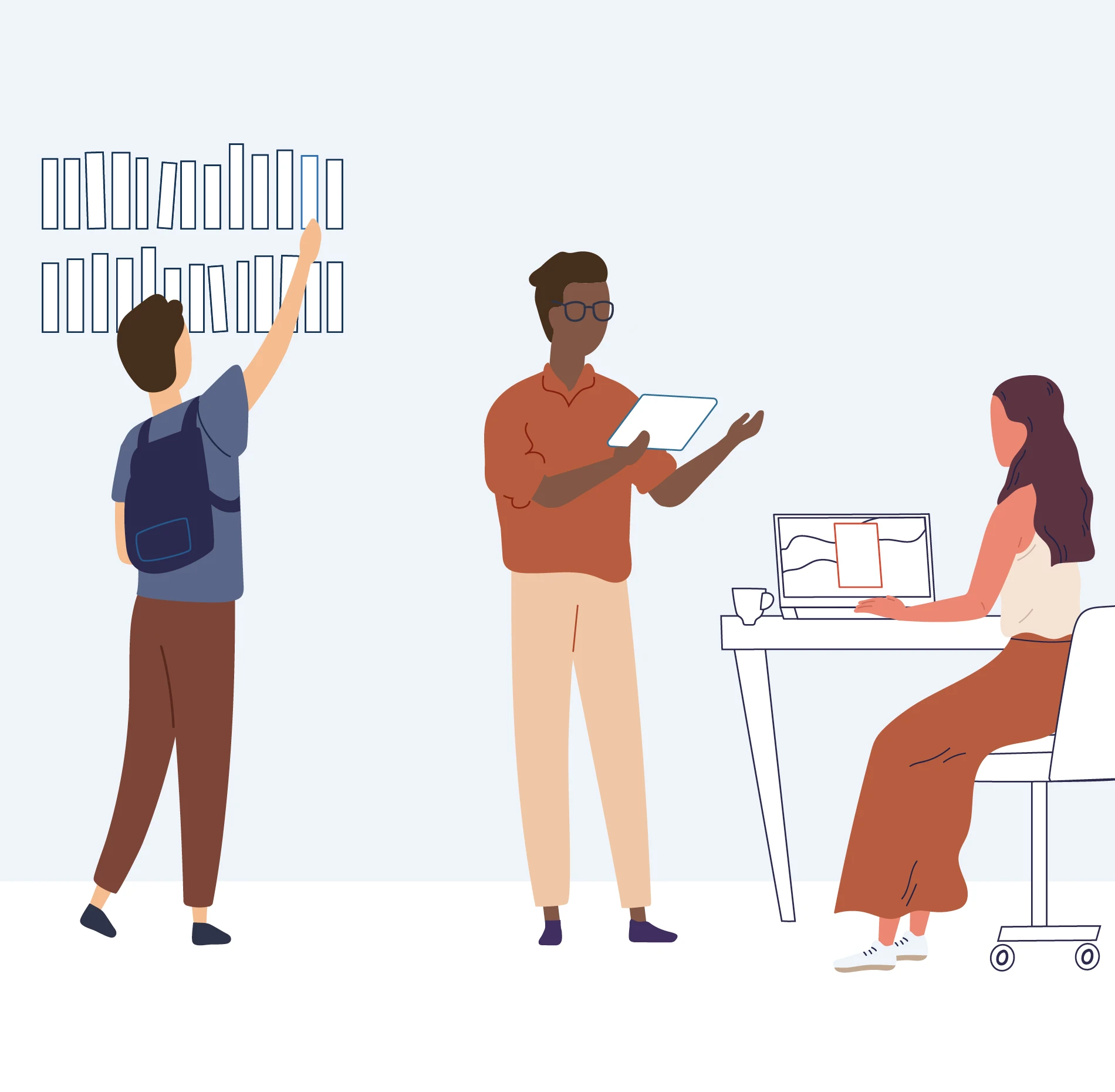
FAQ for publishers
About the reader compensation
Publishers of the following categories of work are generally eligible for a reader compensation:
- Scientific books and journals
- Study books and journals
Stichting UvO tracks down the right rights holders, conventionally by conducting research at educational institutions into the reuse of copyrighted material in readers, digital learning environments, etc. If your content is (re)used, we will contact you.
The distribution of reader fees, and thus the compensation for publishers, is based on research. You can find your share in the distribution on your digital invoice in the web portal.
Based on estimated use and research
Universities and UASs collectively buy off excerpts of content without registering the actual use. As a result, your compensation is largely not based on which titles are (re)used. Instead, it consists of a reasonable compensation for the use of your published work, based on our research. We use this method this to keep the administrative burden as low as possible.
Based on random samples
Every three years, specific (er)use is registered and researched at educational institutions. This is done by an independent research agency that carries out random samples. The share per publisher is then determined and a distribution key is calculated. The ratio of publisher shares is therefore as accurate as possible.
Based on permission requests
Educational institutions request permission for medium-length and 'non-short' exceprts via the UvO web portal. The publishers in question receive compensation for this.
The payment (also known as ‘distribution’) of the reader fees takes place at various times during the year:
Collective redemption fees:
These are automatically paid out to the relevant publishers, usually at the end of the year.
The reader fees collected through collective redemption arrangements are distributed based on a distribution key (also known as ‘share distribution’). Stichting UvO continuously researches the actual reuse of content at various colleges and universities. This allows us to pay out to the correct rights holders as accurately as possible. The current distribution key will be applied at least until 2025.
Title-specific fees:
These are automatically paid out to the relevant publishers, usually in the spring.
Sometimes educational institutions want to use longer takeovers (also known as ‘non-short’) in their education. They can request separate permission for this via Stichting UvO and pay a separate, additional fee. Because payment is made per title, these fees are paid out ‘title-specifically’ to the relevant publishers. The distribution of the reader fees is carried out in accordance with a distribution regulation, in which the legal framework and policy regarding shares of rights holders and the distribution of funds are further explained.
Exception: fees from the MBO
Copyright fees at MBO institutions are collected by Stichting Reprorecht in the context of the MBO reproduction scheme. They pay the portion for publishers to Stichting PRO, which in turn distributes this among publishers. Click here for more information about how the reproduction rights fees are distributed.
Stichting UvO collects reader compensations and distributes them to the rights holders.
- Reader fee 'short':
- Reader fee 'non-short':
- Reader fee 'title specific':
No, publishers are entitled to this compensation. Stichting UvO does withhold administrative costs and VAT from the total available gross amount of the reader funds. You will not notice this: you will receive your payment net.
Stichting UvO is a non-profit organization and strives to keep administrative costs as low as possible. The College van Toezicht Auteursrechten (CvTA) oversees this. Stichting UvO currently applies a withholding percentage of 10.5%. This allows us to implement the complex arrangements, maintain administration, and carry out control activities. Additionally, there is a 2.5% withholding on the distribution of short and non-short reproductions for the purpose of Enforcement & Monitoring. Checking digital readers and electronic learning environments is a labor-intensive process, which incurs substantial costs. However, all parties involved agree that the importance of these controls remains significant.
Yes, the reader compensation is a gross compensation for publishers. Publishers are responsible for distributing and paying the "author's share" of the compensation to their (freelance) authors. This is the publisher's responsibility.
The amount to be paid to authors depends on the contractual agreements between the publisher and the authors. Typically, this is around 50%, but publishers can set a different, reasonable distribution. The division between the author and publisher shares for the repro rights compensation can serve as a guideline.
Certain groups receive compensation through their own organizations (such as Lira, Pictoright, etc.). Therefore, you do not need to pay out to:
- Employees on payroll (under the employer's copyright).
- Freelance creators of photos, illustrations, sheet music, newspapers, and general books.
Additionally, you do not need to pay out the home-copying compensation.
Stichting UvO usually tracks down the right rights holders to pay compensation to. We do this based on data that we obtain from inspections at educational institutions and separate permission requests.
In order to be able to pay compensation, rights holders must grant a mandate to Stichting UvO. Practically all publishers in the Netherlands have already done this. More information about this can be found on this page.
Have you never had contact with Stichting UvO, but do you think that your works are used in education? Then please contact us to be sure.
